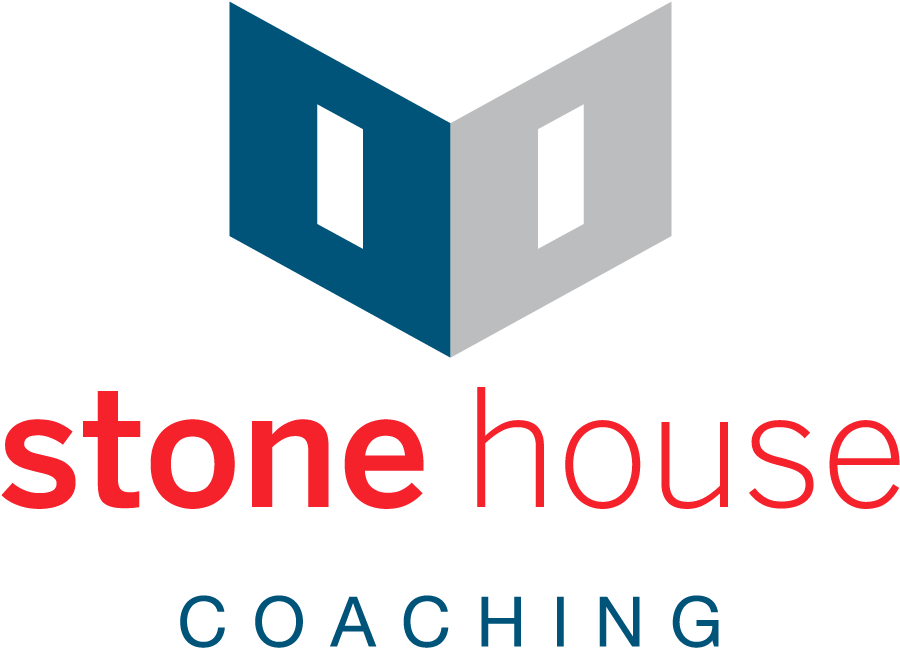The Leader’s First 100 Days: Case Study
The Situation
Stone House Coaching values client privacy, so the leader’s name has been changed.
Entering a new role as VP of Marketing within a software company that provides cloud solutions for 75% of Fortune 500 companies globally, Emily desired to become effective quickly.
The Coaching Process
The coach met with Emily weekly for 100 days, totaling 14 meetings. In advance of each session, she summarized her progress in seven areas:
Communicate her vision
Establish personal credibility
Assess her team
Assess the health of the business
Orient herself
Build trust
Secure early wins
She scored her progress as strong, average, or weak in each area. Naturally, the scores fluctuated week-to-week as Emily achieved success in some categories and setbacks in others. The coach helped her establish realistic expectations balanced with personal accountability. Together they set weekly goals with a growth mindset. “Average” and “weak” scores are opportunities, not failures. The scores also gave the coach a chance to evaluate whether Emily was too easy or hard on herself.
The seven focus areas prompt the leader to consider success broadly. As the leader establishes baseline successes in certain areas, they narrow their focus on deficits in the program’s final weeks. Emily narrowed her focus to establishing personal credibility, assessing her team, assessing the business’s health, and building trust. Different leaders concentrate on other areas. This flexibility allows the program to be most impactful for each leader.
The Results
Through the framework of the seven leadership areas, the coach helped Emily excel.
Communicate her vision:
Early on, Emily wrote and communicated her plan to both her direct reports and up to senior leadership. Through informal and formal conversations, Emily sought feedback from across the organization and worked with her coach to refine and implement her vision.
Establish personal credibility:
Emily experienced varied progress with different leaders and teams. The coach helped her identify how to navigate unintentional setbacks by taking responsibility and finding solutions to challenges. Discovering opportunities to continuously build trust allowed her to better navigate challenging stakeholder relationships.
Assess her team:
Emily used the DiSC tool to understand her team’s work style. With coaching, Emily grew her skills as a guide rather than a director. Her tendency was to give orders, so she worked to ask questions that empowered her team to take initiative. She used the Objectives and Key Results (OKR) framework to set collaborative goals.
Assess the health of the business:
Using a data-driven approach to understand the business’s health was a known deficit for marketing before Emily began this role. Emily leveraged Salesforce to establish accountability for business success. With persistence and coaching, she created a holistic customer-lifecycle visualization.
Orient herself:
Emily struggled to prioritize time with stakeholders to understand their expectations as she concentrated on business-critical tasks. Coaching helped her prioritize this integral aspect of success.
Building trust:
Similar to establishing personal credibility, Emily faced wins and losses in building trust with different stakeholders. She boosted trust in her team and department across the organization by persevering through setbacks, advocating for her team, and having strategic conversations about opportunities for improvement.
Securing early wins:
Emily sought early wins, but the deliverables on her team’s roadmap were months-long projects. Through coaching, she found hidden opportunities to demonstrate her team’s success with wins in the meantime.
“Building a strong, resilient team (and quickly!) is top of mind for leaders, regardless of industry. Having a dedicated coach to help guide that critical first 100 days was incredibly helpful.”
